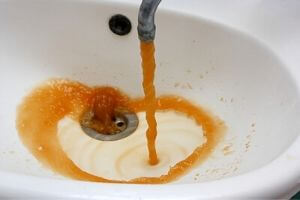As our homes evolve with the times, so do the technologies we implement within them. Gone are the days of bulky, energy-consuming water heaters; say hello to the new age of tankless water heaters.
Are you curious about how tankless water heaters work? Below, we will discuss what a tankless water heater is in detail. By the end, you’ll better understand their functions, benefits, and what makes them so different from their traditional counterparts.
What Is a Tankless Water Heater?
If the time has come to replace your current water heater, you may have a few questions about your options. So, what is a tankless water heater, exactly? Unlike traditional water heaters that continuously heat water in a large tank, tankless water heaters heat the water directly as it flows through the unit. In simple terms, the water heats up on demand. This means no more waiting for a storage tank to fill up or heat, ensuring you never run out of hot water again.
The Mechanics Behind Tankless Water Heaters
The principle behind how tankless water heaters work is simple. Here is what to expect:
Heat Exchanger
At the core of how tankless water heaters work is a component called the heat exchanger. When you open a hot water tap, cold water travels into the unit and over this heat exchanger. Depending on the type of tankless water heater, a gas burner or an electric element heats the exchanger, which in turn heats the water. By the time water exits the unit, it's at the desired temperature, ensuring that the water is heated efficiently and quickly.
Flow Rate & Energy Types
The speed at which a tankless water heater can heat the water is referred to as its flow rate. Gas water heaters often have higher flow rates compared to electric tankless water heaters. However, the choice between gas and electric models will often depend on your home’s setup and your personal preference. While gas models use propane or natural gas, electric models use your home’s electricity.
The Benefits of Going Tankless
The decision to get a tankless water heater installed depends on your household's needs. When making your decision, there are several benefits of tankless water heaters worth considering.
Space Saving and Aesthetic Appeal
One of the biggest advantages of tankless water heaters is their compact size. These units are significantly smaller than traditional water heaters, making them perfect for homes with limited space. You can easily mount them on a wall or even hide them in a closet, maintaining a clutter-free home environment.
Energy Efficient and Eco-Friendly
Tankless water heaters are incredibly energy efficient. Since they only heat water when required, they don’t continuously consume energy like traditional water heaters. This not only reduces your energy bill but also reduces your carbon footprint, making your home more environmentally friendly.
Longevity and Reliability
A typical tankless water heater has a lifespan of up to 20 years, almost double that of some traditional water heaters. Their design minimizes the chances of rust and corrosion, ensuring they last longer. Plus, with fewer parts that can wear out, they tend to require less maintenance over time.
Install a Tankless Water Heater Today!
Now that you understand how tankless water heaters work, it's time to decide if they're the right fit for your home. If you’re keen on making the shift or just want more information, G.F. Bowman is here to help. We strive to be a leading tankless water heater installation company, offering top-notch service that you can rely on.
Let us help you make an informed decision. Contact us today to schedule a quality water heater service with our experts in Harrisburg and Lebanon, PA, and invest in a solution that's both eco-friendly and cost-effective in the long run!





 Water heaters are made of metal and as it gets older, sediment from the water will settle on the bottom of your water heater. As the water heater heats the water over and over, it causes the sediment to harden.
Water heaters are made of metal and as it gets older, sediment from the water will settle on the bottom of your water heater. As the water heater heats the water over and over, it causes the sediment to harden.
 One of the biggest tell-tale signs of a failing water heater is metallic water. Just like when testing watercolor, you’ll want to make sure your cold water isn’t affected before there’s cause for alarm. If you notice a metallic smell or taste from your hot water, it’s likely that your aging water heater has tainted your water.
One of the biggest tell-tale signs of a failing water heater is metallic water. Just like when testing watercolor, you’ll want to make sure your cold water isn’t affected before there’s cause for alarm. If you notice a metallic smell or taste from your hot water, it’s likely that your aging water heater has tainted your water. 1..
1..
 2..
2..
 3..
3..
 4..
4..
 5..
5..
 6..
6..